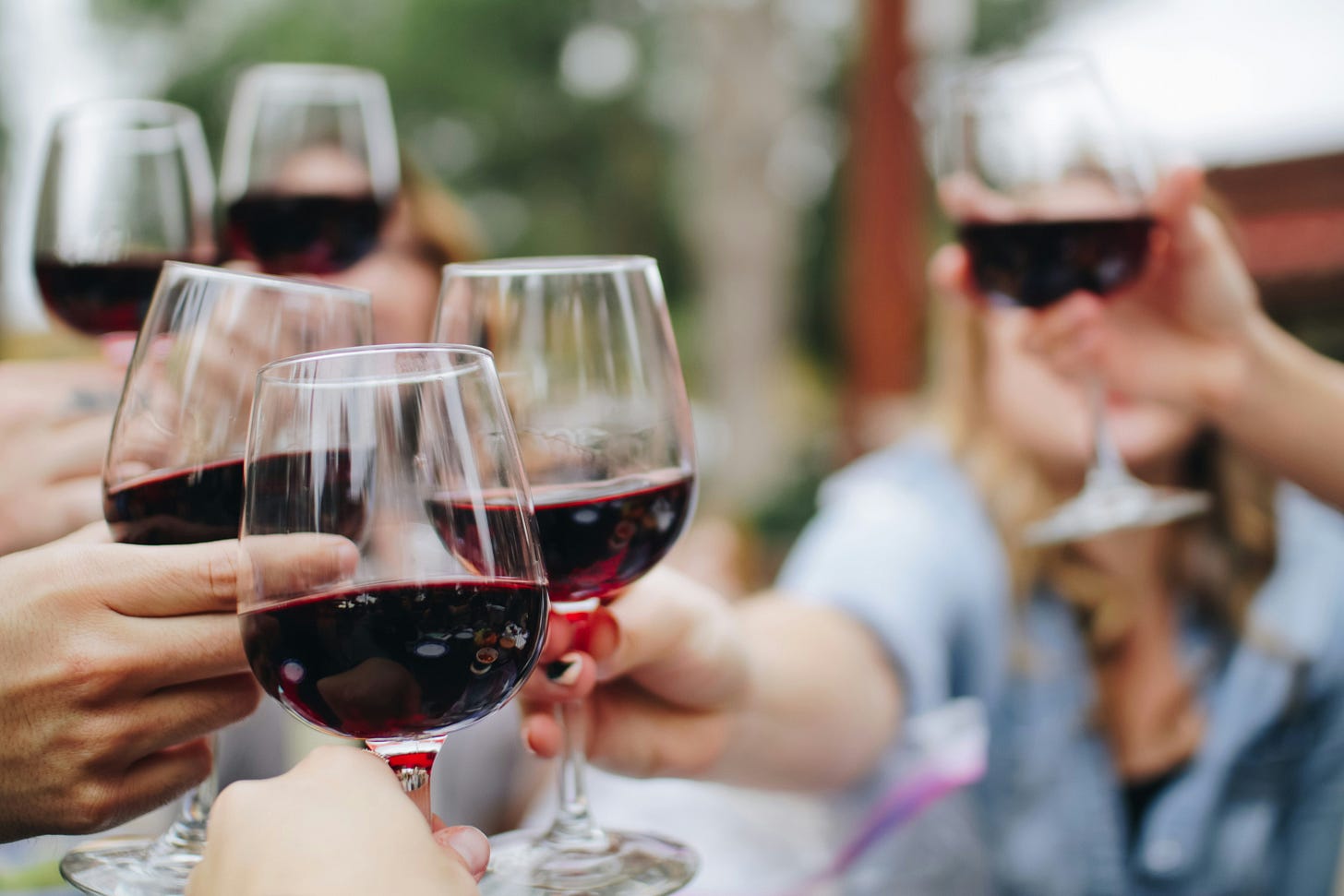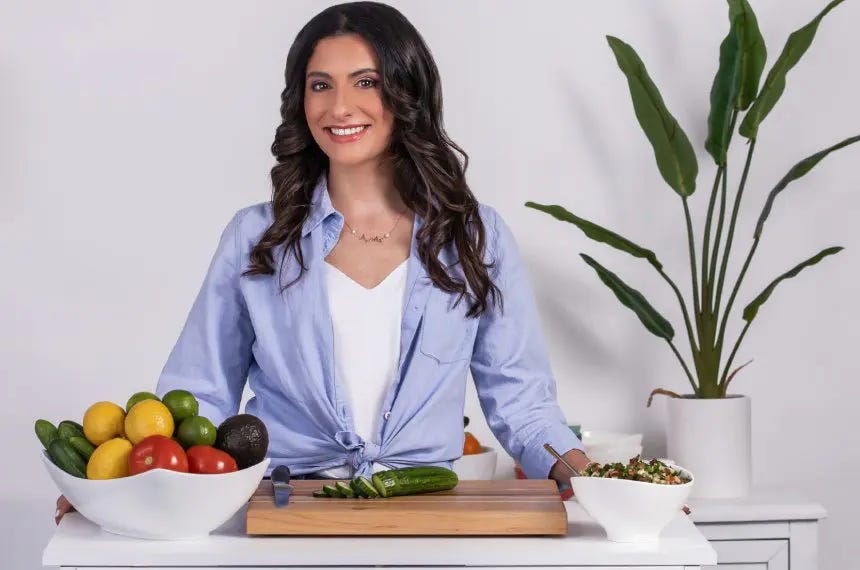The sound of knives clinking against glasses. The smell of bourbon on your friend’s breath. Standing in line at the pharmacy. Passing the hot dog vendor on your way to work. Eating chocolate birthday cake.
Alcohol cravings can occur at any time of the day or night; when you most expect them or when you least expect them. Identifying those triggers and overcoming those cravings during recovery can sometimes feel impossible.
“Sometimes if I’m cleaning up after I host an event and I get a strong smell of red wine, it takes me back to that first sip,” says Kelley Kitley, a licensed clinical social worker and international women’s mental health expert who is six years sober.
Understanding what happens to the brain is the first step in understanding how to endure and thrive in the recovery process. You may encounter a longing, a thirst, a tremor, an anguish, a desire to feel nothing or everything.
But here’s the good news: it is possible to curb the cravings and overcome them.
Science plays a role in alcohol addiction
Alcohol is a drug. When a drug, of any kind, enters the body, it disrupts the body’s natural state. We know alcohol can affect a person’s emotions, decision-making skills, and motor skills, but what happens to the brain when someone drinks again and again?
Alcohol, though classified as a depressant, acts as both a depressant and a stimulant (which is why it brings you both highs and lows). When alcohol is consumed, it directly impacts the body’s neurological pathways, including the glutamate system, which is directly connected to plasticity, learning, and memory. You might be thinking, yes, that explains blackouts, but it’s more complicated than that.
A study published in the Progress in Neuro-Psychopharmacology and Biological Psychiatry describes alcohol dependence as “a reduction in reward threshold, development of a negative affective state, and significant impairments.”
Essentially, chronic (constant and excessive) drinking directly altars the brain’s glutamatergic neuroplasticity, which leads to more alcohol cravings and an increase in maladaptive behaviors. Drinking alcohol to avoid anxiety, for instance, is a maladaptive behavior.
This is why chronic drinkers during the recovery process are more susceptible to relapse. When the brain has been significantly altered (and the reward threshold has been significantly reduced), it takes more than the removal of alcohol to overcome the urge to drink again - it takes time, a lot of effort, and often, professional help.
Triggers can occur anytime, anywhere
“When the brain receives information that it associates with drinking, like a stressful situation or the smell of a neighborhood bar, it immediately remembers the positive experience with alcohol and sends signals, or cravings, that encourage the behavior,” says Sal Raichbach, psychology doctor at Ambrosia Treatment Center.
Throughout the recovery process, thoughts, feelings, and physical sensations will come and go - and thankfully, what triggers you today might not trigger you next year. But if you want to overcome the triggers and avoid, minimize, and overcome the cravings, it is necessary to recognize what exactly is triggering you.
When you used to drink to feel relaxed or to feel more confident, then you might crave alcohol at times when you wish to feel more relaxed (after a stressful meeting) or when you wish to feel more confident (during a first date). Knowing your “alcohol cues” is crucial.
“Sometimes it is not just the environment that can be triggering, but it may be as simple as something you eat. For example, fluctuations in blood sugar levels spurred by certain foods can be mistaken as an alcohol craving to a recovering individual,” says Aaron Sternlicht, Addiction Specialist at Lin & Aaron Coaching, LLC. “We often encourage individuals to keep a craving log in which they can identify the time of day, where they are, who they are with, how they are feeling, and what the intensity of their craving is on a scale of 0 to 100.”
You may be surprised to learn what your triggers are. They will look and feel different for every individual. But we know alcohol addiction is complicated and so is the recovery process.
How long you’ve been drinking (how many years, decades), how often (daily, weekly), where you’ve drank (bars, work, home), what industry you work in (restaurant, healthcare, law) and who you’ve drank with (friends, parents, kids, coworkers) impacts your drinking behaviors and your needs in recovery.
“Therapeutic methods like cognitive behavioral therapy and dialectical behavioral therapy are helpful to those who are experiencing cravings. These tools help people identify the cognitive processes in the brain that are contributing to their drinking and use coping mechanisms to stop the behavior,” explains Raichbach.
Overcoming the cravings is a process
“It is possible to train your mind to avoid [alcohol cravings], but it takes work. Just as these associations are formed over time, it takes time to undo connections once they are established,” says Raichbach.
Unfortunately, cravings don’t always go away. They can return years, even decades later. One of the best things you can do is recognize them and respond to them in a healthy, positive way.
“I’m not responsible for my first thought,” says Kitley, who still experiences alcohol cravings. “I’m responsible for my preceding thoughts. If I engage in the fantasy of a drink, I can get to an obsessive place and think it wasn’t ‘that bad,’ or I can acknowledge the thought, play the entire tape forward [and acknowledge that] I never had ‘just one.’”
To overcome the craving, she says, “I call my best friend who is also alcohol free to talk it through and the craving passes. Then, I usually head to my favorite cafe and get a coffee or smoothie.”
How you respond to and engage with a craving is important. You want to be careful not to replace your alcohol craving with something equally as addictive like nicotine, sex, or gambling. Talking through the feelings with a friend, with a mentor, or a mental health professional can be extremely beneficial.
Sternlicht says, “The good news is that, like all human organs, the brain, too, has an incredible power to heal with time and through professional help. Evidence-based treatments, holistic healing, and other recovery methods have proven to reverse the damage caused by addiction in many cases. [And] normal life pleasures such as eating a tasty meal, traveling, or spending time with loved ones begins to bring pleasure once again.”
If you’re sober, know that you’re not alone. Keep going, even when it’s hard… especially then. You got this.
*The above was originally published in The Temper (now defunct)
Katia Mashni, RDN, MPH, NBC-HWC, is a registered dietician nutritionist and board-certified health and wellness coach.
Raised in diet culture surrounded by family members who were constantly going on and off diets, as well as experiencing her own GI issues, Katia was fascinated and wanted to dive deeper. She very quickly developed a passion for nutrition, gut health, and preventative medicine.
Becoming a dietician, Katia felt she could learn more and help people get healthier without constantly focusing on diets. She now works with clients interested in using nutrition to address weight management, health condition management, women’s health issues, and other health- and food-related concerns. Katia focuses on personalized nutrition as well as health habits, including sleep, joyful movement, reflection, mindfulness, and other lifestyle choices.
Today, we discuss intuitive eating, what it looks like, how to create a balanced breakfast, the problem with supplements, and more.
What is intuitive eating?
It’s learning to trust your body and being able to make good choices that feel good for you. People shouldn’t have to judge themselves or feel guilty after eating a meal. When I talk to clients about how food makes them feel in terms of nourishment, then they start actually wanting to eat healthier food not because they're healthier and they want to lose weight, but more because it makes them feel good and still gives them the energy and focus they need throughout the day.
What’s your personal approach to navigating food nutrition?
I see a lot of weight loss clients and a lot of them come to me because of constant dieting and they're ready to just learn what intuitive eating is and learn what nourishment looks like for their body.
We talk about personalized nutrition, personalized health habits, and working on building something more sustainable. When it comes to intuitive eating, I help my clients relearn what intuitive eating is for them. We also talk about nutrition, sleep, hydration, physical activity, or joyful movement is what I like to call it, and reflection and mindfulness. When we work with these five pillars of health, it's much easier for them to tap into their intuition when it comes to nutrition, feel better overall, and find the energy to prepare meals, go for walks, and sleep better.
There are so many different diets and food recommendations like Whole 30 and the Mediterranean diet, making it hard to understand what’s best for your body. What would you say to women who are trying to navigate the dialogue that's out there and trying to understand what works for them?
Yes, I love this question. Diet culture still exists and I feel like it will just keep on unfortunately. When women are trying to find a better way to eat healthier, I always say to follow people with credible backgrounds. Check out their education. Dieticians go through years of education and training, as opposed to somebody who is not a food expert but is sharing their personal experience. You shouldn’t necessarily trust everything they say because you don’t know where this information is coming from. The source of information should be coming from valid research. Nutrition is a big topic and it's constantly changing. Maybe one thing is proven a certain way, but research changes and we need to continue to adjust our learnings.
Moderation is also key. That's what I live by and that's what I promote because there are certain diets that ask you to cut major food groups from your diet. Ketogenic diet asks you to cut out carbohydrates and this doesn't sound sustainable or like the healthiest option for a woman who has a family and a busy lifestyle. If a diet asks you to cut out major food groups, there's a big question mark there.
The Mediterranean diet, in terms of research, has shown to be the healthiest out of all diets. It doesn't cut out major food groups, not even sugars or alcohol. It's moderation inclusive so it helps you create a healthier relationship with food without feeling like you're really restricted. It focuses on whole grain, fruits and vegetables, fiber, and lean protein. Research has shown that it has a very positive effect on your health and well being.
Diet, to me, refers to everything you eat and drink. A diet works well when you’re able to function optimally. When someone says, “I’m on a diet,” we often think of a restricted diet, but that’s not really what “diet” means.
What trends are you seeing that concern you?
A lot of influencers are pushing for certain supplements, ones that claim to have super foods and high fiber. I’m not against supplements; I highly recommend supplements because it helps people who are changing their diet, but I work with them to find the perfect supplement protocol for their body.
Unfortunately, far too many people see things on social media and they just start ordering and spend their money on things they don't necessarily need or may not work for them. There are supplements, for example, that promote restful sleep and if you just drink this one drink before bed, but that’s not realistic. Collagen, too, is good, but only if you know the perfect balance for your body.
What do you make of the “What I eat in a day” posts on social media?
I think it just sends negative messages to people trying to follow a healthy lifestyle. It seems very clean and perfect when most people’s world is not very clean or perfect, because they're trying to drop off kids to school and go to work and come back from work and prep and take the kids to soccer. Their days do not look the same as an influencer’s.
I like the ones where they say “What do I eat in a day,” and then they say, “Whatever I want.” It’s more realistic. We can have a perfect plan for the day or the week, but something might come up; life changes and it’s not going to look the same all the time.
Obviously, the more whole foods you can eat the better but what do you recommend to those looking for alternative options?
For people with busy lifestyles, I like to focus on meal prepping on the weekends and making meal prep look easy, not intimidating. Sometimes we see all of these containers and not everyone has time for that, but having a plan for the week ahead of time will help save you a lot of time. It also helps to pack lunches for work.
If they need supplements, there are some protein bars and protein shakes that I might recommend. I look at the labels and look for products that don't have a lot of ingredients in them and don't have a lot of (or any) artificial sweeteners in them. I also look at protein content and if it’s an easy grab and go.
Breakfast can be controversial. What do you recommend for a healthy, balanced breakfast?
Breakfast is a great meal and there's a lot of debate on breakfast but to clarify breakfast means to break the fast. It’s a break. When you break your fast depends on personalized nutrition, but it’s important to break the fast. It doesn't necessarily mean that you need to make eggs and sausage every single morning. You can break with something small or something that's more substantial that will hold you over for the next three to four hours.
The point of breakfast is to give you that focus and energy to start your day. When people say, “I don't need to eat breakfast,” or “I don’t like it because it slows me down or it’s too heavy and I can't eat that much,” I remind them it doesn’t have to be a feast. It just has to be something substantial enough to give you that focus or energy that you need.
If you choose oatmeal, there’s instant oatmeal that’s flavored and has a ton of added sugar to it, which can spike blood sugar levels and make you feel very tired for an hour or so after, or there’s original steel cut oats. Whatever you choose, it should have less than five sugars. You want to avoid a sugar spike. Adding healthy fats, a protein milk, chia seeds, flax seeds, nuts, or other things can help create a balanced meal.
What would you say to women who are looking to reframe their relationship with food?
You want to get to a point where you’re not dieting and you have food freedom, where you feel good about what you’re eating and how you’re eating. It’s a beautiful place to be. An intuitive eating dietician or professional can help you through it and figure out what intuitive eating might look like for you. It can take time. For some people it might take longer than others, but I always recommend finding someone to help you navigate it.
What are some tips you’d recommend to those wanting to practice intuitive eating?
I ask clients to reflect after eating and also slow down when you're eating a meal and not rush it. You want to enjoy the meal and use your five senses when you’re eating. This helps you tap into more mindful eating. Is it yummy? Is it warm or spicy? What does it feel like? What are your emotions or senses around the meal? Give yourself some time to enjoy it. Once you’ve enjoyed it, reflect on the experience. How does it make you feel? Do you know what hunger and fullness feel like? If the meal makes you feel uncomfortable or bloated or weighed down or takes energy away, make note of that.
Some people experience the guilt feeling that comes after a meal. You may experience emotional eating. You may think, “I’m going to have a brownie today, and then I'm going to stop eating them and tomorrow I will start a diet.” That negative talk and you want to stop that. If you want to have a brownie, have a brownie and enjoy it. Don’t feel guilty. And don't feel guilty. Don't restrict yourself. Just say, “this is good, I’m enjoying it,” and that’s it.
You want to practice having a positive feeling and remove the guilt. Start with a positive experience. If you restrict yourself, you may end up taking another brownie and another without ever feeling satisfied. If you're hungry, allow yourself to eat.
What advice would you give to those navigating diet culture and body image?
Learn what it means to eat balanced. Sometimes people are in a state of dehydration and they confuse their hunger and thirst cues; they think they’re hungry, but they’re actually thirsty. Make sure you're drinking water throughout the day. Surround yourself with people with positive energy. If people are commenting on body image in a way that doesn't sound right to you, and it doesn't make you feel good, tell them. If you’re following someone on social media who gives you a negative feeling, unfollow them. Follow people who are actually boosting your mood and giving you that positive affirmation that you know you're doing the right thing.
I also recommend deep belly breathing; it helps you regain focus and feel like you are more focused and at ease with your feelings. If you have a negative feeling or are experiencing guilt, take a few moments to just deep breathe, because that helps relax you and you can regain your focus and shift it to somewhere that's more positive. You can also use positive affirmations and positive meditations to help you with emotions around food and your body.
What’s one healthy habit you can’t live without?
Hydration and drinking water and getting into the habit of bringing my water bottle with me at all times. Whenever I'm running errands, that's something that I need to always pack with me. Another is sleep and having a bedtime routine that will set me up for good quality sleep. I always stress on these two things with my clients and with myself because it helps so much. It helps you start your day off right.
If you liked this issue, please subscribe or share with a friend!









